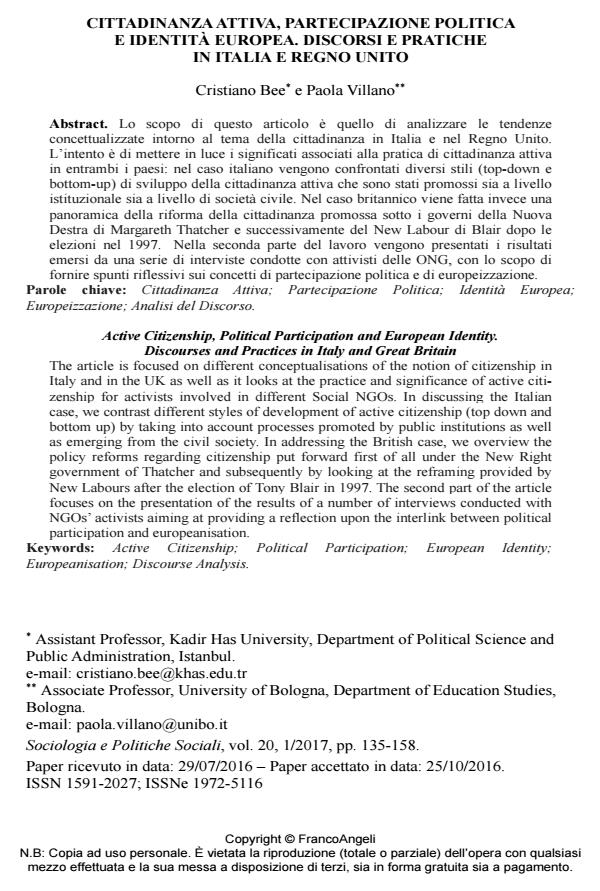Active Citizenship, Political Participation and European Identity. Discourses and Practices in Italy and Great Britain
Journal title SOCIOLOGIA E POLITICHE SOCIALI
Author/s Cristiano Bee, Paola Villano
Publishing Year 2017 Issue 2017/1
Language Italian Pages 24 P. 135-158 File size 270 KB
DOI 10.3280/SP2017-001007
DOI is like a bar code for intellectual property: to have more infomation
click here
Below, you can see the article first page
If you want to buy this article in PDF format, you can do it, following the instructions to buy download credits

FrancoAngeli is member of Publishers International Linking Association, Inc (PILA), a not-for-profit association which run the CrossRef service enabling links to and from online scholarly content.
The article is focused on different conceptualisations of the notion of citizenship in Italy and in the UK as well as it looks at the practice and significance of active citizenship for activists involved in different Social NGOs. In discussing the Italian case, we contrast different styles of development of active citizenship (top down and bottom up) by taking into account processes promoted by public institutions as well as emerging from the civil society. In addressing the British case, we overview the policy reforms regarding citizenship put forward first of all under the New Right government of Thatcher and subsequently by looking at the reframing provided by New Labours after the election of Tony Blair in 1997. The second part of the article focuses on the presentation of the results of a number of interviews conducted with NGOs’ activists aiming at providing a reflection upon the interlink between political participation and europeanisation.
Keywords: Active Citizenship; Political Participation; European Identity; Europeanisation; Discourse Analysis.
Cristiano Bee, Paola Villano, Cittadinanza attiva, partecipazione politica e identità europea. Discorsi e pratiche in italia e regno unito in "SOCIOLOGIA E POLITICHE SOCIALI" 1/2017, pp 135-158, DOI: 10.3280/SP2017-001007